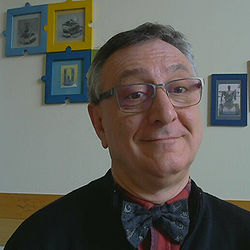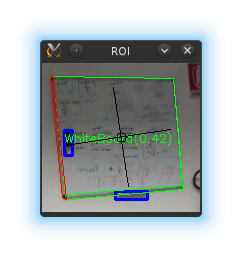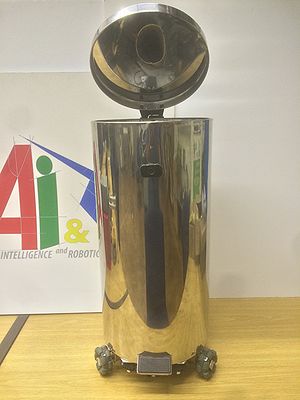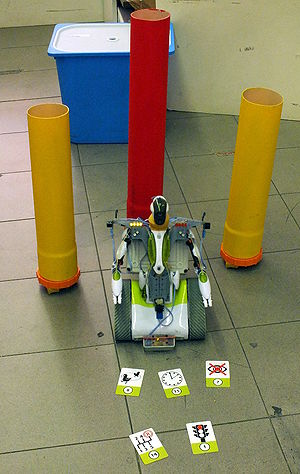User:AndreaBonarini
Andrea Bonarini
| |
| E-Mail: | andrea.bonarini@polimi.it |
| Research Areas: | |
Full professor, coordinator of AIRLab
This is my home page on the airwiki website.
Here you can find projects and thesis proposals as well as currently tutored projects and people.
For general information about me (office, phone, curriculum, etc), please visit my official home page at DEIB.
For research and teaching information, please visit my personal home page.
Contents
MS and BS thesis and project proposals
| Wiki Page: Cognitive SLAM Title: Cognitive SLAM |
| Wiki Page: Designing Living Objects Title: Designing Living Objects |
| Wiki Page: Robot Games Title: Robot Games |
Projects I am currently tutoring
- Autonomous Robot for emotional interaction (Expressing emotions in interaction with children wih disabilities. MariaVirginiaPrati)
- Emotional Bioinspired Control (A control system able to control motors to emulate the movement of biological entities, with the possibility to show emotional features at control level. FranciscoJoseAznar SantiagoMeseguer)
- EmotionalBlueTrashBin (The goal of the project is to build an emotuional, mobile trash bin. GabrieleIannone)
- EmotionalLamp (Lamp showing emotion reactions GabrieleGhiringhelli)
- Pokety (The purpose of the project is to manifacture a pocket-size interactive robot for the amusement of children affected by autism or dyspraxia. The robot has its own personality, which is displayed in accordance with kid's movements. FlavioDeVincenti)
- SmallBasketBot (Robogame StefanoPersico)
- Temporary Unnamed Project (Simple game that consists in a robot looking for a coloured tower and the human opponents trying to guide him to another zone marked with a different colour, avoiding him to win. SamueleGiussani RiccardoConfalonieri)
- Teo Interactive (Interaction with Teo, robot for autistic children RachelWinsor)
Students I am currently tutoring
- AlessiaPaccagnella
- AngeloNasole
- DavideTateo
- EwertonLopes
- FlavioDeVincenti
- FrancescoDiGioia
- FranciscoJoseAznar
- GabrieleGhiringhelli
- GiuseppeDiFrancesco
- LorenzoSilvestrini
- MariaVirginiaPrati
- MarinaGnocco
- MatteoLucchelli
- MirzaRamicic
- RachelWinsor
- RiccardoConfalonieri
- SachinSoman
- SamueleGiussani
- SamueleLanzanova
- SantiagoMeseguer
- … further results
PhD Thesis Proposals
Highly Interactive Robotic Games
Interactive games involving people and autonomous robots are one of the most challenging robotic research issues. The robot should engage the human player, both physically and behaviorally, while acting in the real world. The task is even harder, due to constraints given by the market, which imposes the robot to cost not more than a videogame console. This research requires developments in Robotics technologies, and, at the same time, the study of a novel framework of interaction. According to the competences of the candidate(s), the accent might be on robot shape, movement, behavior, interaction, signals, game design and evaluation. Reference area: Robogames
Affective Computing: how emotion detection can affect pervasive computing
This research aims at investigating emotion detection from natural interaction with devices and the environment, and the impact that this information can have on the behavior of the intelligent environment. Applications range from interaction with robots and intelligent buildings, to automotive, PC-games, and entertainment. Technologies involved include video (and signal in general) analysis and computational intelligence. Reference area: Affective Computing
Robot Actor: how an autonomous robot can play on stage
Theatrical performance is a way to explore real human-robot interaction in a defined setting, thus not requiring to detect it, but focusing on the selection of the right actions and modalities for the social specific situation. A model of emotion expression and of the management of social relationships has been already developed, and the final robot has to be devised and integrated. "I love theatre, because I repel illusions." [F. Barba - Odin Theatre] Reference Area: Robot development.



